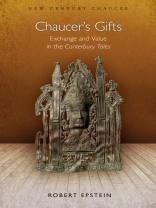Geoffrey Chaucer’s Canterbury Tales, the most celebrated literary work of medieval England, portrays the culture of the late Middle Ages as a deeply commercial environment, replete with commodities and dominated by market relationships. However, the market is not the only mode of exchange in Chaucer’s world or in his poem. Chaucer’s Gifts reveals the gift economy at work in the tales. Applying important recent advances in anthropological gift theory, it illuminates and explains this network of exchanges and obligations. Chaucer’s Gifts argues that the world of the Canterbury Tales harbours deep commitments to reciprocity and obligation which are at odds with a purely commercial culture, and demonstrates how the market and commercial relations are not natural, eternal, or inevitable – an essential lesson if we are to understand Chaucer’s world or our own.
Mục lục
Acknowledgements
Introduction: Chaucer’s Commodities, Chaucer’s Gifts
1 The Franklin’s Potlatch and the Plowman’s Creed: The Gift
in the General Prologue
2 The Lack of Interest in the Shipman’s Tale: Chaucer and
the Social Theory of the Gift
3 Giving Evil: Excess and Equivalence in the Fabliau
4 The Exchange of Women and the Gender of the Gift
5 Sacred Commerce: Clerics, Money and the Economy of
Salvation
6 ‘Fy on a thousand pound!’ Debt and the Possibility
of Generosity in the Franklin’s Tale
Conclusion
Notes
Bibliography
Index
Giới thiệu về tác giả
This book will appeal to professional scholars as well as advanced undergraduates and postgraduate students.












